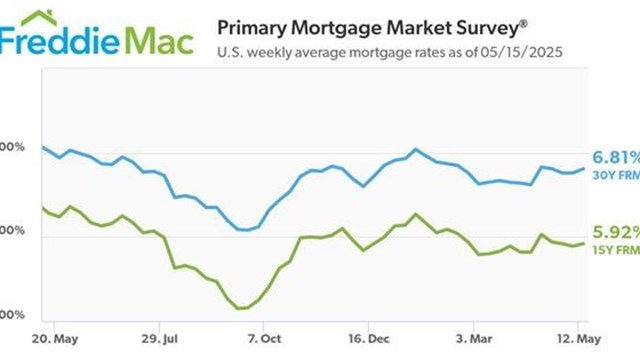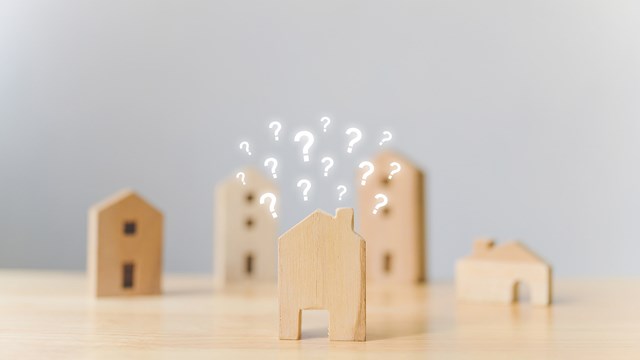Selling your apartment in New York is serious business. If you're thinking of selling your co-op or condo, the question of where to even list the property for sale alone may be enough to keep you up nights, to say nothing of putting a fair market price on it, arranging for prospective buyers to come in and view what you're offering, and finally closing the deal. There are countless little (and not-so-little) things to worry about, and if you're a normal, mortal human with a job, maybe a family, and a life to lead, you may find yourself in serious need of help - the kind of help that a professional real estate broker may be just able to provide.
Before delving into the topic, however, it should be pointed out that it's not patently impossible to sell your own apartment in a city like New York. It can be done, of course, but the commitment of time and energy required is often prohibitive. According to Andrew Hieberger, chairman and president of CitiHabitats, a Manhattan rental brokerage that has in the last two or three years been edging into the sales market, "For an owner to put their own property on the market, the number-one place to put it would be the New York Times, and then pick all the big brokerage companies from the paper and fax it over to their listings department." But, says Hieberger, "Brokers have a network that there's no way a private owner could assemble."
Brokers also know the ins and outs of the complicated closing and board approval processes - knotty procedures that can take forever and drain even the most enthusiastic participant. According to John Lawrence, executive vice president and sales manager of Manhattan's Bellmarc Realty, "[A buyer] has to have their pre-qualifications and letters ahead of time, and the stuff that's necessary for the board package. Because once the contract's done, [you] only have about 10 to 20 days to get the board package in, and you're talking about letters from past job experiences, personal references, bank statements, bank reference letters, stock brokerage statements, so it's going to be quite overwhelming."
Of course, as with engaging any other professional service provider, the first step to working with a broker to sell your apartment is actually finding one. Real estate is practically a spectator sport here in New York, so it's no surprise that there are scores - if not hundreds - of brokers jockeying to represent sellers and their properties. Weeding through the masses to find someone compatible with you, your schedule, and your expectations can seem daunting.
According to Karen Duncan of the Corcoran Group in Manhattan, "[You] should interview at least three brokers, and choose the one you have the best chemistry with and who you think would work the hardest and has a good handle on the market. Mostly, though, I think it's about the relationship you feel you would be able to establish with the person who would be showing and eventually selling your home."
Duncan continues, "You should ask whether or not the broker has sold in the building, if they'd be willing to give you a couple of references of other buyer/sellers they've worked with, whether they specialize in a particular area, what the state of the market is, and what your apartment is worth. You should also ask for comparables in the neighborhood or other parts of the city, as well as how long a property will take to sell. That's hard to answer, but you should ask how long this type of property stays on the market."
You could decide to go with an exclusive listing agent or go to the open market and list with many brokerage firms. In an exclusive arrangement, the seller enters into a contract with the broker securing that listing for a set period of time, often six months or so. After the allotted time is up, the seller has the option of moving the listing to another firm or extending the agreement. In an open arrangement, the seller may choose to give the listing to as many firms as he or she likes.
Another benefit of having a broker represent you is the emotional stress and tricky negotiations it saves you. Says Duncan, "[One] benefit of having a broker"¦is the removal of the seller and the buyer from working directly with one another, which can be a little sticky when it's principal to principal working together."
Lawrence agrees, saying, ""It's pretty well known that brokers aren't dealing with an emotional situation"¦We're strictly looking at the financial situation behind it. So you remove the personality out of it - when selling a property, you always want to be in agreement with the buyer, so if the buyer feels that the furnishings are to big in an apartment, you can deal with something like that, whereas if an owner is doing it, the buyer is going to be insulting the owner's taste. Those are some of the immediate benefits of working with a broker. There's also the obvious point that it's not just about showing the property, it's about closing the deal, getting board approval and getting them through the board. Most people who purchase have no idea how to do a board package. Most people will need assistance in completing a board package."
A good broker doesn't work for free, of course; typically, you can expect to pay a percentage of the final selling price of your apartment to your broker for the help he or she has rendered during the process. Says Lawrence, "Generally, it's a commission of six-percent of the sales price. And it usually winds up being co-brokered with three percent going to one firm and three percent going to the other."
Hieberger concurs, adding that ""¦More expensive apartments go at five percent, and we sometimes do four percent direct, or six percent on a co-broke. Anywhere between four and six percent is the general ballpark."
"But," says Lawrence, the commission is just part of the bigger picture. "Most people think we go out there, open the door, and make a big commission, but the reality is that with any particular client, we're probably showing them 20 or 30 properties before they even make an offer, and then qualifying them to make sure they can get through the board and taking them to the right buildings where they can pass the board."
Once you've decided to sell and have bonded with your broker, you must decide how much your apartment is actually worth and how it will be priced. Several factors influence the final figure, including current market prices for comparable properties, what the market will actually bear, special amenities in the building, (of course) location, location, location. But it's still not quite as simple as it sounds. According to Hieberger, "The real estate market is not a readily available market where you can just put your apartment out there and it automatically sells. If it does sell quickly, that's not necessarily something that I would congratulate you for - I'd say you probably sold too cheap. Sometimes people say, "˜Oh, I got away without a broker and I sold my place in a week,' and I think, "˜Congratulations, you just lost $75,000.' There's a fine balance between the time on the market and maximum price."
Your broker will be key in helping you to determine an asking price for your apartment, or you may opt to secure the services of a professional appraiser. According to Duncan, "If a seller insists on having an appraiser come in, that's fine, but normally an appraiser comes in to determine what a bank will loan - and that's not necessarily what the market value of a property is."
You can also request a run-down of recent sales within your building from your board; there are few better methods of judging the value of your property than setting it against nearly identical properties in the same building. Pricing far below or above the building average will only lessen your eventual sales return.
And that would be unfortunate, considering the various chunks that will be taken out of the final figure. According to Hieberger, regardless of whether a sale is handled by a broker, or solely by the owner, "Ninety-nine point-nine percent of the time, the proceeds from the sale go to pay off the underlying mortgage, then are applied to any secondary mortgages or lines of credit, then to cover the closing costs - whatever's left after all that goes to the seller as profit."
Now that you've got a price and a clean bill of apartment health, you and your broker must decide how you intend to show your home to prospective buyers. Will you allow your broker to take home-hunters one-by-one through the apartment by appointment, or would you rather hold an open house or two?
Says Duncan, "Many, many people come to public open houses on the weekend - Sunday, usually - or in the evenings. Open houses and one-on-one showings really aren't that much different. I think people come to open houses to get an education."
According to Hieberger, "An open house - particularly when it's a populated open house - creates a sense of urgency"¦Open houses are also a very good time to get other brokers through the property to preview it at the same time."
"A good broker shouldn't leave the proceedings until there's a meeting of the minds on price," says Hieberger, "at which point, for liability reasons, the broker should turn it over to a lawyer. But a good broker will stay involved at every step of the way, with the lawyers, board approval, etcetera."
Lawrence agrees, saying, "Even at the closing, we'll provide phone numbers for how to get the phone hooked up, the electrical, and give them an little outline of who to speak with in the building. Also, we retain relationships for referral purposes."
What it all boils down to, according to Mary Jo McNally, a sales associate with the Corcoran Group, is "Pricing, marketing, showing the apartment, getting a higher price in as quick a time as possible, and then putting together the package that ties the whole thing together and making sure that the board gives approval for this purchaser. Nobody wants to get turned down, because then you have to go through the whole process again, delaying the time it takes for the seller to get their money."






Leave a Comment